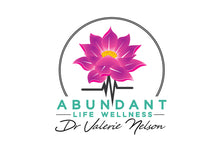
Hello!,
Vitamin D is an extremely important vitamin that has powerful effects on your body.
Unlike other vitamins, vitamin D functions like a hormone, and every single cell in your body has a receptor for it.
How is it produced? -- Your body makes it from
cholesterol when your skin is exposed to sunlight. It's also found in certain foods such as fatty fish and fortified dairy products, though it's very difficult to get enough from diet and sunshine alone.
The big issue at hand is Vitamin D deficiency - it is very common. It's estimated that about 1 billion people worldwide have low levels of it in their blood. According to a 2011 study, 41.6% of adults in the US are deficient. This number goes up to 69.2% in Hispanics and 82.1% in African-Americans.
Common Risk Factors for Vitamin D Deficiency
Here are 7 common risk factors for vitamin D deficiency:
- Having dark skin.
- Being elderly.
- Being overweight or obese.
- Not eating much fish or dairy.
- Living far from the equator where there is little sun year-round.
- Always using sunscreen when going out.
- Staying indoors.
- People who live near the equator and get frequent
- sun exposure are less likely to be deficient, as their skin produces enough vitamin D to satisfy their bodies' needs.
Most people don't realize that they're deficient, as symptoms are generally subtle. You may not recognize them easily, even if they're having a significant negative effect on your quality of life.
Signs & Symptoms of Vitamin D Deficiency
Signs and symptoms of vitamin D deficiency:
* Getting Sick or Infected Often - Weakened Immune System
* Fatigue and Tiredness
* Bone and Back Pain
* Depression
* Impaired Wound Healing
* Bone Loss
* Hair Loss
* Muscle Pain
The Bottom Line
Vitamin D deficiency is incredibly common and most people are unaware of it. That's because the symptoms are often subtle and non-specific, meaning that it's hard to know if they're caused by low vitamin D levels or something else.
If you think you may have a deficiency, it's important that you have your blood levels checked. Dr. Nelson says that most of the blood labs will say that "normal" levels are between 30-110, but to be functioning at optimal health, your levels need to be at least 70-100 on the lab tests.
Vitamin D Protects Against Disease
Vitamin D3 supplementation is one of the most significantly, yet simple things that you can do to protect yourself from many health ailments including cancer.
Another common occurrence Dr. Nelson sees in many of her clients is a STRONG correlation between Vitamin D deficiency and thyroid imbalances. Almost anyone who has symptoms of under-active thyroid, 9 times out of 10 has D3 levels that are under 30 on the lab tests. Again, for optimal health you want to be in the 70 - 100 range. Unfortunately, many times the blood work for thyroid imbalances comes back normal for years while the patient is left suffering with symptoms and often times put an an anti-depressant because they think it is all in their head.
Some individuals will go on a D that is recommended by their doctor. We have seen that the pharmaceutical D many times does not bring the levels up to a good range.
Fortunately, a vitamin D deficiency is usually easy to fix.
Taking a good quality Vitamin D supplement may be the easiest way to increase your vitamin D deficiency. Click below for a 10% off coupon!
Warning - Beware of Sunscreens!
Another thing to note is if you are increasing your sun exposure, you must be careful about sunscreens! Many believe they are doing something healthy by slapping on sunscreen to protect them from cancer, but that is not the case when a lot of the sunscreens have toxic ingredients that are cancer causing as well! Here are some of our favorite natural sunscreen alternatives:
- Carrot Seed Oil 38 - 40 SPF
- Wheat Germ Oil 20 SPF
- Coconut Oil 2 - 8 SPF
- Olive Oil 2 - 8 SPF
- Avocado Oil 4 - 15 SPF
- Raspberry Seed Oil 28 - 50 SPF
- Macadamia Nut Oil 6 SPF
Keep in mind, fixing your deficiency is simple and can have big benefits for your health!

